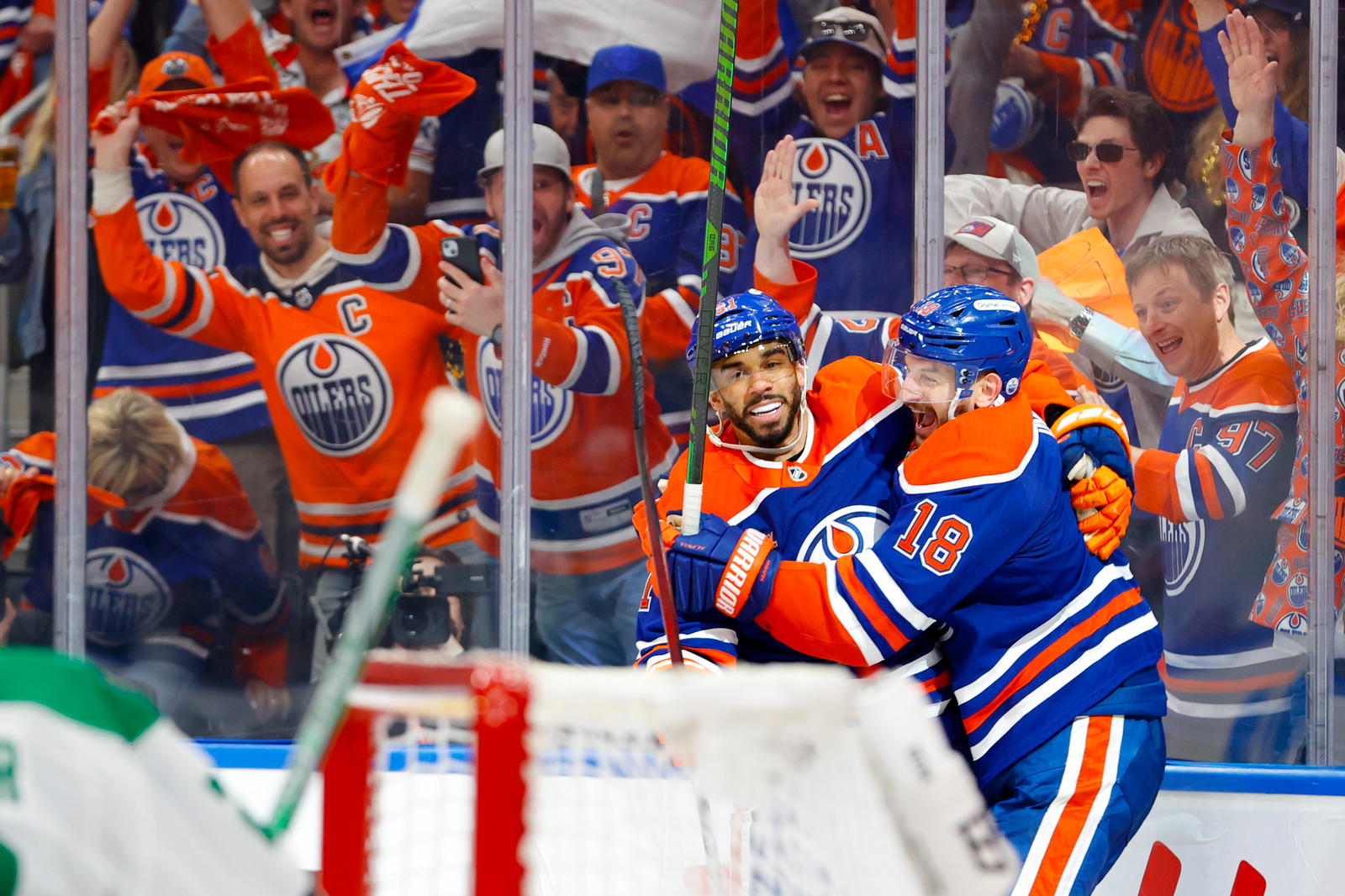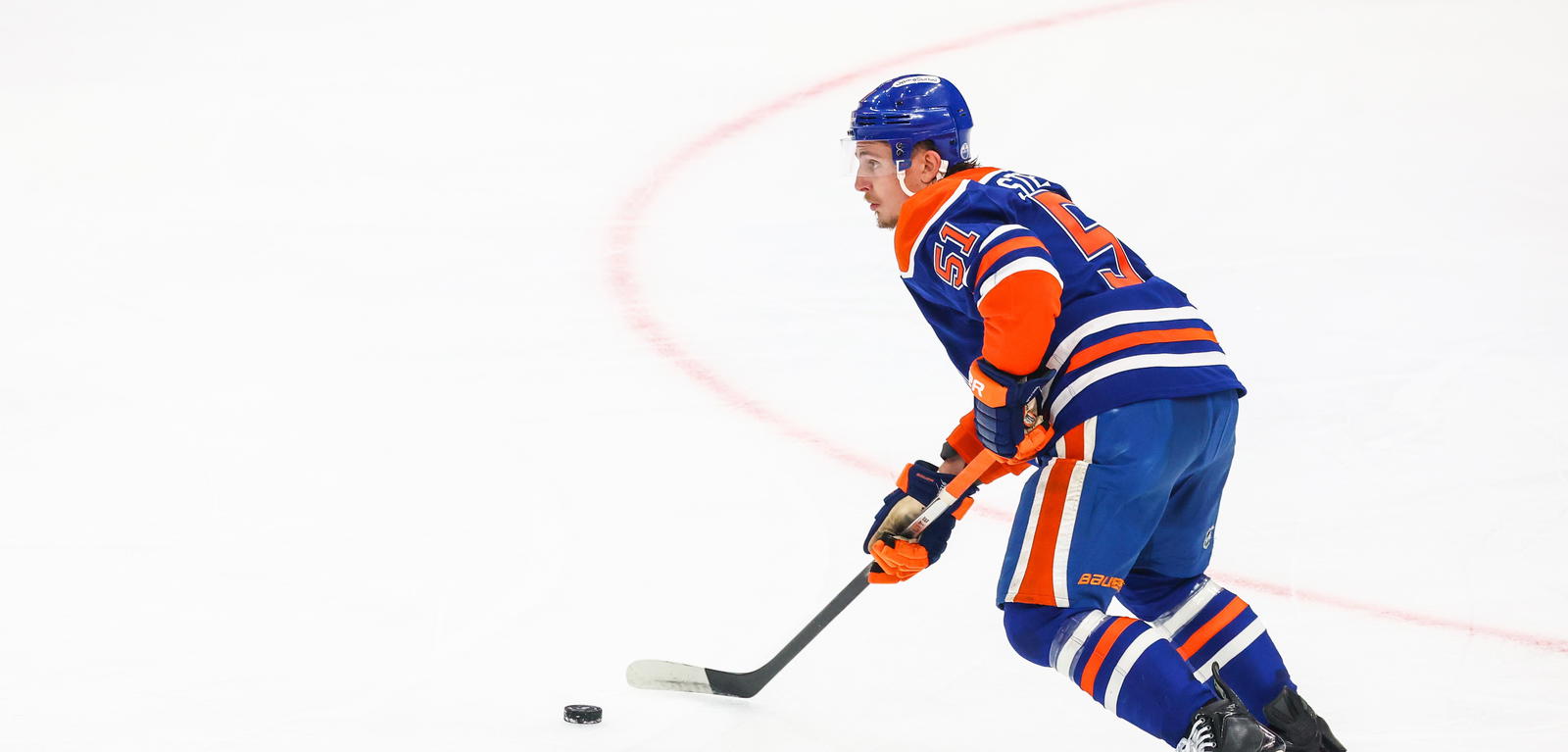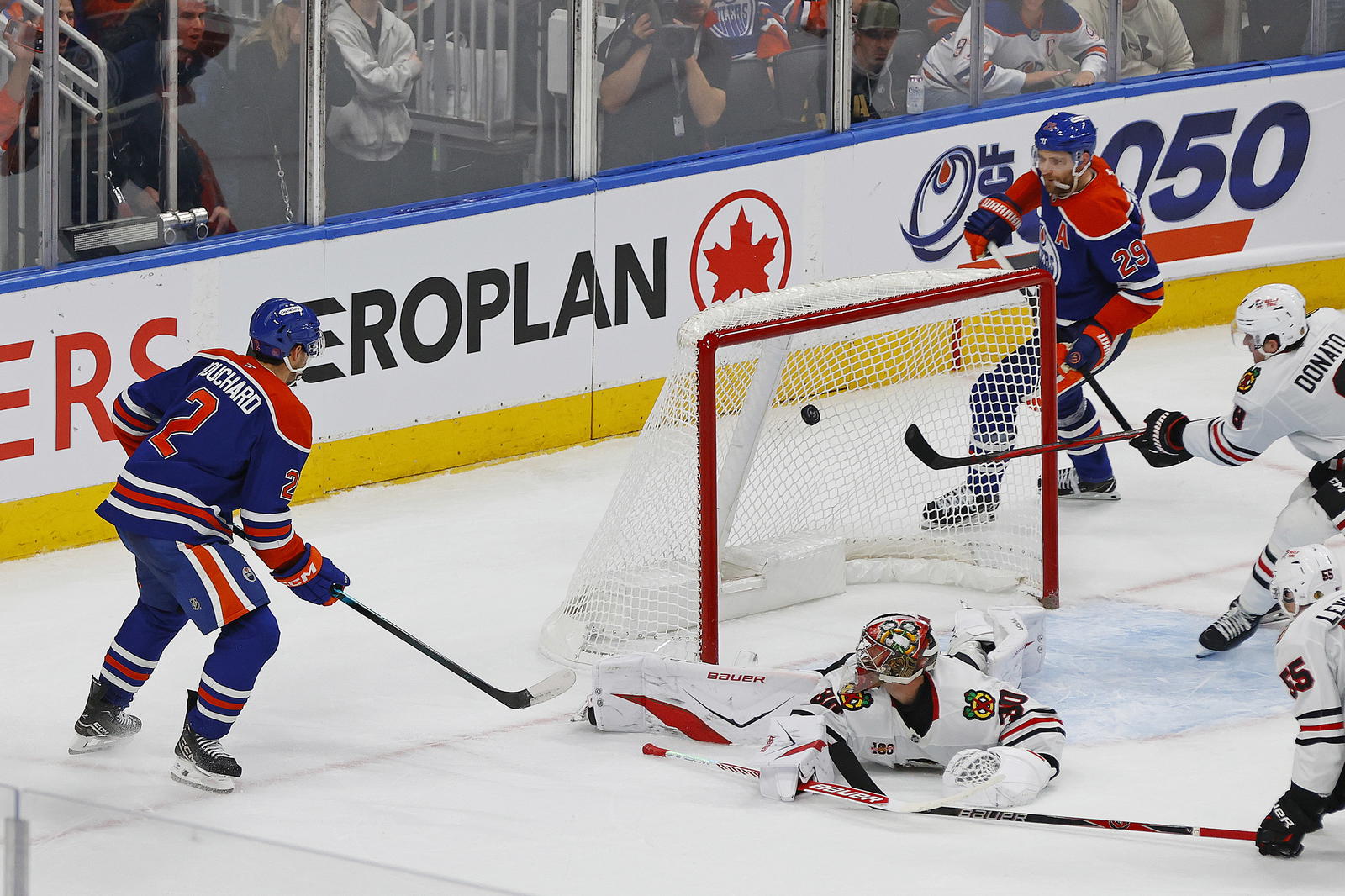The Edmonton Oilers Are the Biblical Sodom and Gomorrah of the NHL: A Team Destined for Destruction Unless They Change Their Ways
The Edmonton Oilers’ recent loss to the St. Louis Blues highlights a season marred by persistent issues that seem to defy resolution. Despite a strong start, including an impressive record for star player Connor McDavid, the team’s inability to maintain leads and generate consistent five-on-five offense has become a glaring problem. The Oilers’ performance against the Blues, who were on a seven-game losing streak, raises questions about the team’s structure, player execution, and overall strategy.
In the game against St. Louis, the Oilers initially took a 2-0 lead but ultimately succumbed to a 3-2 defeat. This game exemplifies a troubling trend: the Oilers often appear dominant for portions of games only to falter in critical moments. The Oilers controlled the majority of the contest, yet their failure to close it out has been a recurring theme this season. In the end, it was the same issues that have plagued them throughout the year—defensive breakdowns and an inability to generate pressure at even strength.
The statistics reveal a troubling picture. The Oilers have played more minutes tied at even strength than any other team in the NHL, yet they have only managed to score 23 goals in those situations, well below expectations. Their power play, while effective at over 33%, serves as a veneer for the more significant problem: a lack of scoring depth and consistent offensive pressure when not on the man advantage. The reliance on special teams has created a precarious situation where one bad penalty kill could spell disaster.
Roster construction plays a crucial role in the Oilers’ struggles. While they boast two of the league’s best players in McDavid and Leon Draisaitl, the supporting cast has not provided enough offensive firepower. The depth players, while capable, have failed to create enough dangerous chances, placing immense pressure on the stars. This reliance on a few players to carry the scoring load is unsustainable over the long haul of an 82-game season.
Another critical factor contributing to the Oilers’ woes is their defensive structure. The team has struggled to defend leads effectively, often opting to maintain an aggressive approach rather than shifting to a more conservative strategy. This leads to unnecessary risks and breakdowns, particularly in the defensive zone. For instance, Pius Suter’s game-winning goal for the Blues came from a rebound opportunity created by sustained pressure in the Oilers’ zone, a situation that should have been mitigated through better defensive play and puck management.
As the season progresses, the Oilers’ inability to address these fundamental issues raises concerns about their prospects for success. Kris Knoblauch, a member of the coaching staff, acknowledged that the team is not playing its best hockey and that building an identity takes time. However, the continued occurrence of the same problems begs the question: what exactly is being solved? The Oilers have been unable to maintain leads, generate consistent five-on-five offense, and avoid critical defensive breakdowns. If progress is being made, it is not evident in the standings or on the ice.
The notion that roster turnover and the integration of new players are to blame only goes so far. Yes, there are new faces learning the system, and yes, chemistry takes time. However, the core issues plaguing the Oilers are rooted in execution rather than personnel. A team with aspirations of competing for the Stanley Cup should not struggle to protect a 2-0 lead against a team mired in a losing streak. Basic defensive responsibility and sound decision-making should be the foundation upon which success is built.
Despite McDavid reaching a significant milestone with his 1,100th career point, the individual achievements of star players cannot mask the deficiencies of the team as a whole. The Oilers are at a crossroads, facing rising pressure to rectify their flaws before the season slips further away. With the looming prospect of a more challenging schedule, the urgency for improvement is palpable.
The situation is compounded by the performance of players like Evan Bouchard, who has had a rocky start to the season despite flashes of brilliance. His overtime winning goal against Chicago raised hopes for redemption, but consistency remains elusive. The Oilers need players to step up and contribute regularly, particularly in high-stakes moments.
The Oilers’ recent loss to the Blues not only highlights their struggles but also serves as a stark reminder of the need for change. The solutions to their problems are not complex: tighten up defensively when holding leads, generate more five-on-five offense, and make smart decisions with the puck. Yet, as the season progresses, these fundamental issues remain unresolved.
The Oilers’ inability to execute basic principles of hockey raises concerns about their future. The team appears to be stuck in a cycle of repeating the same mistakes, much like the biblical cities of Sodom and Gomorrah, facing inevitable destruction if they do not change their ways. As the season unfolds, the question remains: will the Oilers find a path to redemption, or will they continue to spiral downward, handing victories to teams desperate for a win? The clock is ticking, and the time for action is now.
The Edmonton Oilers lost 3-2 to the St. Louis Blues on Tuesday night, and if you’re wondering what went wrong, the answer is the same things that have been going wrong all season. The problems aren’t complicated or mysterious. They’re just not getting fixed.
St. Louis came in on a seven-game losing streak, allowing 4.17 goals per game—worst in the NHL. They’d given up 34 goals at five-on-five, more than any other team. Their goaltending was shaky. Their defence was leaking. They were desperate for any kind of positive result. The Oilers spotted them a 2-0 lead and then watched them take it anyway.
The issue isn’t effort. Edmonton controlled most of the game. McDavid hit 1,100 career points with two assists. The power play looked dangerous. For long stretches, the Oilers were the better team. But being the better team for 55 minutes doesn’t matter when you give away the last five.
Start with the five-on-five offence, which has been anemic all season. The Oilers have played more minutes tied at even strength than any team in the NHL—332 minutes through 14 games. In those situations, they’ve managed just 23 goals with an expected goals total of only 25.
The power play is masking how little offence this team generates at even strength. They’re clicking at over 33% with the man advantage, which is elite and keeps them in games. But relying on special teams to carry your offence means you’re one bad penalty kill night away from getting shut out. Eventually, you need sustained five-on-five pressure, and Edmonton isn’t creating enough of it.
Part of that is roster construction. The Oilers don’t have enough players who can drive play independently. When McDavid or Draisaitl aren’t on the ice, the offence stalls. The depth players are capable, but they’re not generating enough dangerous chances to keep opponents honest. That puts enormous pressure on the top guys to produce every shift, and even they can’t do it consistently over 82 games.
The defensive structure is the bigger concern. Edmonton doesn’t defend leads well because they don’t adjust their approach when they have one. They keep trying to attack instead of forcing opponents to break them down. They don’t clog shooting lanes. They don’t limit second chances. They don’t make teams earn every inch of ice in the defensive zone.
Pius Suter’s game-winner came on a rebound with 1:23 left in the third period. The Blues had sustained pressure in the Oilers’ zone because Edmonton couldn’t clear the puck effectively. When they finally did get possession, they turned it over, trying to make a play instead of just getting it out.
"We’re not playing our best hockey, and we knew at the beginning of the season that it was going to take a while to build this and get our identity," acknowledged Kris Knoblauch. "Some of it, we’ve solved things. Our schedule now is going to get a little more difficult."
The problem with that explanation is what exactly is being solved? The same issues keep appearing. Leads keep disappearing. Five-on-five offense remains inconsistent. Defensive breakdowns happen at crucial moments. If progress is being made, it’s not showing up where it needs to.
The roster turnover excuse only goes so far. Yes, there are new players learning systems. Yes, chemistry takes time. But the core problems aren’t about new players—they’re about execution. Protecting a 2-0 lead against a team that’s lost seven straight shouldn’t require perfect chemistry. It requires basic defensive responsibility and smart decision-making.
McDavid’s 1,100th point is historic—fourth-fastest ever behind Gretzky, Lemieux, and Bossy. But individual milestones don’t change the fact that this team isn’t functioning the way it needs to. The best player in the world is producing at an elite level, and it’s still not enough because the supporting structure isn’t there.
St. Louis snapped a seven-game losing streak by rallying from 2-0 down. They hadn’t won since October 18th. They were allowing goals in bunches and searching for anything positive. The Oilers gave them exactly what they needed, and it wasn’t because St. Louis suddenly figured things out—it’s because Edmonton made the same mistakes they’ve been making all season.
The solutions aren’t complicated. Tighten up defensively when holding leads. Generate more five-on-five offence through sustained pressure instead of relying on special teams. Make smart decisions with the puck in crucial moments instead of forcing plays. Execute the fundamentals consistently over 60 minutes.
Those things should be happening by now. A month into the season, these shouldn’t still be issues that need addressing. The Oilers know what’s wrong. They’ve talked about it repeatedly. The question is when they’ll actually fix it instead of just acknowledging the problems exist.
St. Louis got their first win in eight tries because Edmonton handed it to them. Sound familiar?
If you’re still wondering what’s wrong with the Edmonton Oilers, it’s the same things as last week.
Bookmark The Hockey News Edmonton Oilers team site to never miss the latest news, game-day coverage, and more. Add us to your Google News favourites, and never miss a story.



